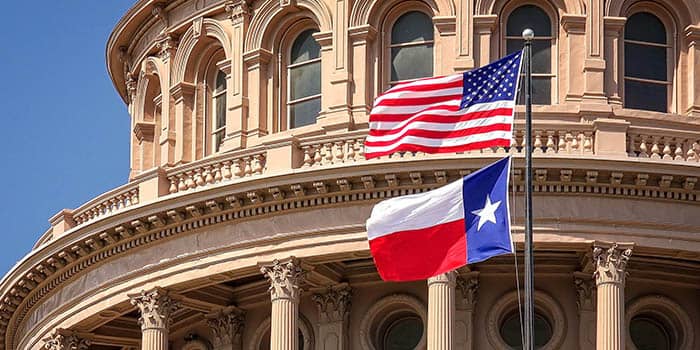This contrasts with last year’s push to create casinos separately, which was quickly shot down despite a large lobbying and TV ad campaign, plus – of course – millions of dollars. By reducing friction with racetracks, though, things could be different this time.
New Proposal Involves Racetracks
State Rep. Charlie Geren filed House Joint Resolution 97, which – if approved – will enable operators to apply for one of seven licenses for destination resorts throughout the state. The proposal is backed by Las Vegas Sands (LSV), which was also behind last year’s failed attempt at legalizing casinos in Texas. The big difference this time, though, is that racetracks are involved.
This means that instead of competing with racetrack operators, this enables them to take part in the new market as it launches. It also gives voters a sense of familiarity, as horse and dog races have been legal in Texas for more than 35 years, and with appetite from established operators, this presumably increases the chances for approval.
The November election is still months away, however involving more of the already established market participants could be time-consuming. Hence, having the information upfront is crucial to speeding up the process. Texas Tribune reported that Andy Abboud – senior vice president of government relations at LSV – said that the new proposal has a much wider coalition behind it.
Similarities with Previous Attempts
Another appealing part of the proposal is that Geren’s proposal would see casinos taxed at 15% of gross casino revenue, which is slightly below the national average. LSV hopes that the prospect of making Texas one of the leading states for horse racing could be another motivating factor to receive stronger and broader support this time around.
Aside from including racetracks, this proposal still seeks to accomplish most of the same goals that last year’s bill failed to. Similarities include the requirements for minimum investments. Figures in Texas Tribune’s report say that this would be $250 million for the Corpus Christi and McAllen areas, $1 billion for the San Antonio area, and $2 billion for the Houston and Dallas areas.
Another similarity is that the proposal will also aim to bring sports betting to the Lone Star State as well. This, coupled with good tax rates and diverting money to horse racing prize pots, means that racetrack operators are rightly paying attention. It also means that the proposed framework is more easily implementable as it relies on already established infrastructure.
Options for Expanding Gambling
Another factor in play, though, is that Texas is missing out on tax revenue over the limits it has imposed on the gambling scene. That’s not all, however, as the pressure to expand gambling in Texas keeps mounting and becomes increasingly more palpable with every new suggestion on how to do it.
Senate Joint Resolution 17 was also brought under the spotlight recently. If passed, the bill would see some limited expansion of gambling in the state with four destination resorts being allowed, and a tiered licensing scheme familiar from last November’s rejected proposal. It would also impose a 25% tax rate for gross gaming revenue for slots, and 10% for table games.
Tribal casinos are also in the talks for expanding gambling, as the Kickapoo Traditional Tribe was also recently reported looking into offering more gambling activities. Senate Joint Resolution 30 aims at adding sports betting, slots, and craps at the sole casino in the Lone Star State – The Lucky Eagle Casino, which is operated by the Kickapoo Traditional Tribe.


